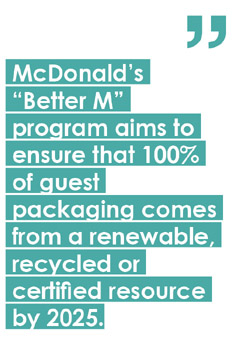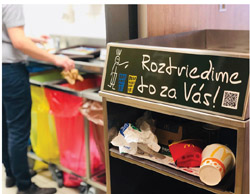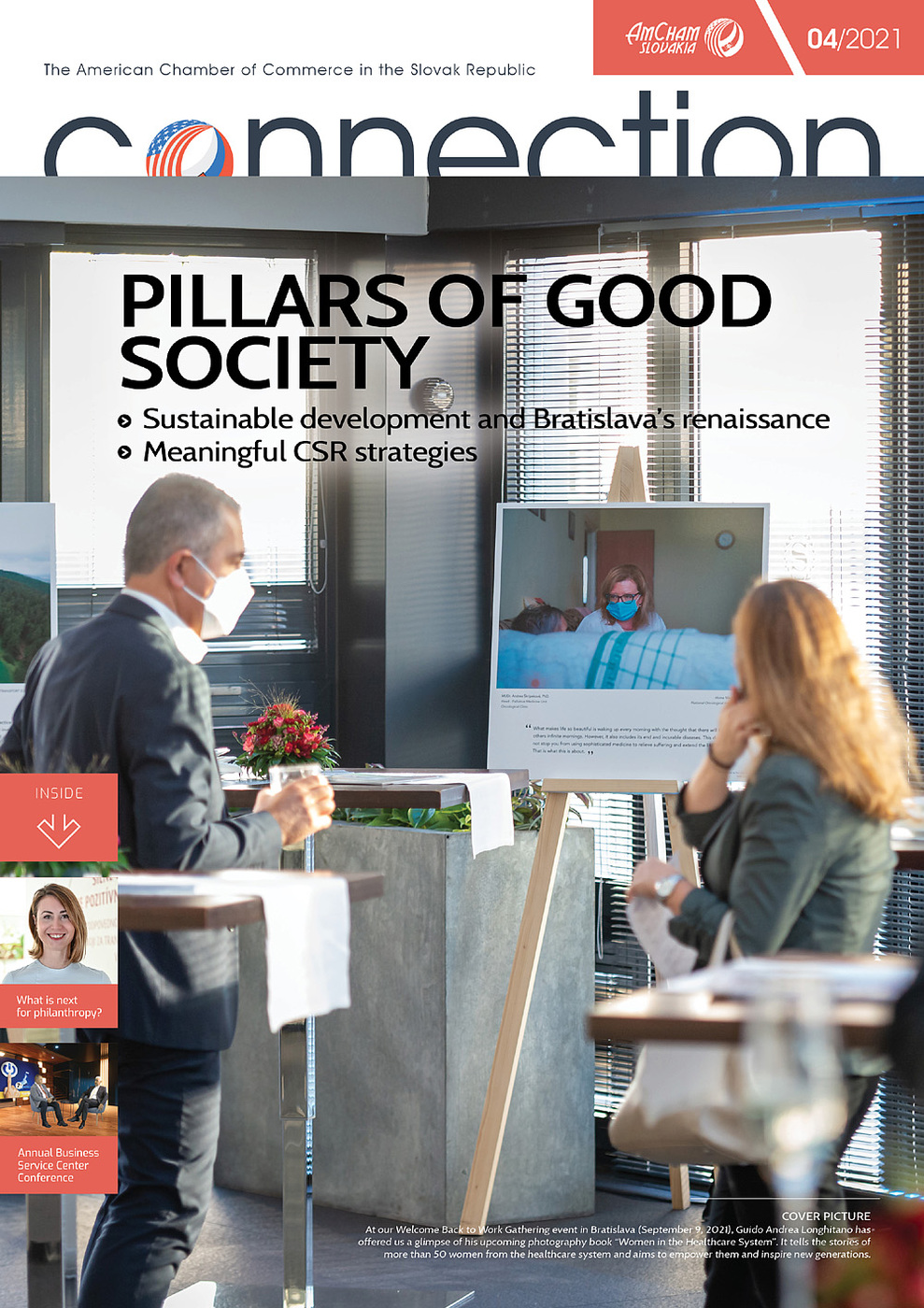McDonald’s is one of the largest foodservice brands globally, and because of that, it bears an immense amount of environmental responsibility. Although there’s much more arduous work to achieve a universally satisfying sustainability goal, corporations that adopted an environmentally friendly strategy early have a clear upper hand. One of the top concerns of any foodservice operation is waste management.
McDonald’s Slovakia had decided to tackle this issue in 2003 when it became one of the first establishments to separate waste left after the customers. This approach has remained standard practice in McDonald’s to this day, and it has paid off significantly, with over 74% of the waste produced by local restaurants separated for further use in 2019.
Every McDonald’s restaurant carefully separates packaging as well as any remaining food leftovers into dedicated containers. Food residue, spoiled ingredients, used coffee grounds, and biological waste are separated and disposed of properly. Fryers have specialized sensors that precisely indicate oil changes, so it always retains its quality before and after use to ensure adequate recycling.
Packaging redefined
McDonald’s “Better M” program aims to ensure that 100 per cent of guest packaging comes from a renewable, recycled or certified resource by 2025. The program comprises various trials, some of which are currently taking place in Slovakia. These trials include removing the McFlurry ice cream lid, fiber-based spoons and drink lids, wooden cutlery, or even the Happy Meal toy take-back in the UK.
 McDonald’s is currently deliberating the use of strawless caps on all soft drinks in Slovakia. The European market is taking the lead, with 88 per cent of all packaging being comprised of fiber and only 12 per cent containing plastic. “Better M” strives to find innovative concepts that provide a sustainable alternative to packaging meals and beverages by taking comprehensive feedback and data from customers to provide a satisfying, uncompromising and sanitary experience.
McDonald’s is currently deliberating the use of strawless caps on all soft drinks in Slovakia. The European market is taking the lead, with 88 per cent of all packaging being comprised of fiber and only 12 per cent containing plastic. “Better M” strives to find innovative concepts that provide a sustainable alternative to packaging meals and beverages by taking comprehensive feedback and data from customers to provide a satisfying, uncompromising and sanitary experience.
What does sustainability mean to us?
Ecological consciousness is, in many cases, a personal issue for many people. The ongoing McDonald’s “Our Because” campaign focuses on the many answers to why we should consider the environment and our green future. Customers can share “the reasons” why they care about sustainability and join many public figures in voicing their concerns and hope for a better future.
A part of the “Our Because” campaign was a unique survey of Slovak customers regarding their view of sustainability and environmental conservation. The survey offers fascinating answers. Over a third of Slovaks believe that their country has significant environmental problems, with only three per cent believing that the Slovak environment is in good condition.
The biggest issue seems to be waste management, with 83 per cent of Slovaks considering dumping and culminating waste the number one problem. The following top priority is deforestation (80%), with water pollution (75%), environmental pesticide and chemical occurrence (72%) lagging slightly behind. Slovakians also marked critical issues in wastewater disposal (72%) and bee extinction (70%). Over a third of people surveyed also mentioned insufficient waste recycling, destruction of farmland, shrinking biodiversity in cities, drinking water wastage and air pollution.
On the bright side, the survey observed positive trends in behavior. Nine out of ten asked believe that their approach can improve the state of nature and wildlife. Up to 94 per cent of Slovaks recycle, 88 per cent are trying to reduce food waste, and 86 per cent are putting their efforts to save water. Plastic bags have been replaced by reusable alternatives by 84 per cent of Slovaks taking part in the survey, and 72 per cent have reported using a reusable water bottle.
 A bright afterlife for sustainable cutlery
A bright afterlife for sustainable cutlery
Sustainability efforts don’t have to be a chore. McDonald’s acknowledges its collaboration with Czech and Slovak bloggers, Meet My Lovely World and Minidiamondblog, to bring exciting and entertaining DIY projects that include wooden cutlery found in McDonald’s restaurants. This creative outlet ensures a meaningful afterlife for sustainable packaging and reinforces the meaning of upcycling, sustainability, and conscious ecological manners.
A good neighbor inspires.
McDonald’s has many restaurants across Slovakia and it considers itself a part of the local community and a neighbor to surrounding businesses and residences. That means that it does everything to keep the surroundings of the restaurants clean and to motivate other companies to do the same. This initiative inspires good neighborhood relationships and creates a clean environment.
Change comes from within.
The steps to sustainability and a bright future are filled with many obstacles that need to be addressed. Results will only appear after years of commitment and responsibility. McDonald’s is an inspiring example of taking accountability for conserving our environment by making a real change immediately.
Viktor Gubka, Freelance writer/videographer



Follow us